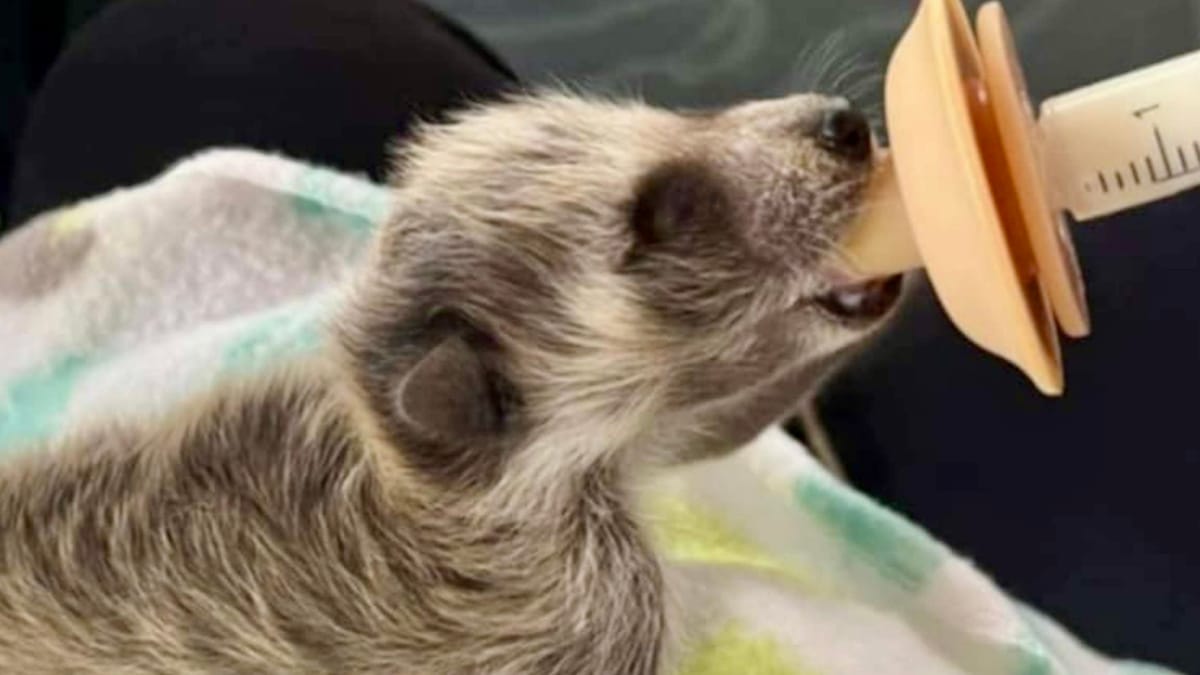Wildlife Advocates Applaud Introduction of Alabama Good Samaritan Wildlife Rehabilitation Act
HB448 would permit individuals acting “in good faith” to care for non-endangered wild animals

A coalition of wildlife rehabilitation groups is praising the recent introduction of a bill that could dramatically change the landscape for injured and orphaned wild animals in Alabama.
HB448, the Alabama Good Samaritan Wildlife Rehabilitation Act, was introduced by State Representative Ben Harrison (R–Elkmont). The Alabama Wildlife Conservation and Rehabilitation Society (AWCRS), North Alabama Wildlife Rehabilitators, and Alabama NEEDS Wildlife Rehabbers are among the groups supporting the bill.
The bill would permit individuals to provide care—"in good faith"—for wild birds or animals that are not federally protected or listed as endangered. The goal is to stabilize the animals and return them to the wild, without violating existing veterinary practice laws or animal cruelty statutes.
“This bill has the potential to save countless animals and empower compassionate citizens,” said Deborah King, spokesperson for Alabama NEEDS Wildlife Rehabbers. “Alabama is one of the worst states for wildlife rehabilitation. We've gone from 100 licensed rehabilitators in 2013 to only five today.”
Since 2013, the Alabama Department of Conservation and Natural Resources (ADCNR) has implemented restrictions that go beyond federal guidance, especially regarding rabies vector species—raccoons, foxes, skunks, coyotes, and bats. Current regulations prohibit residents from assisting any of these animals, even when they are clearly injured or orphaned.
"When Alabamians call the Department of Fish and Game for help, they are told to let nature take its course," said King. "The majority of time, the injury is caused by humans, not nature. Compassionate Alabamians who try to save wildlife of any species are labeled as criminals, and the animal will be confiscated and immediately euthanized."
State wildlife officials have offered little encouragement. Ray Metzler, Assistant Chief of Wildlife for Alabama’s Wildlife and Freshwater Fisheries Division (WFF), defended the current policy: “Basically, there is no biological reason to rehabilitate these animals...it’s survival of the fittest.”
Terry Morse, former director of Big Bend Wildlife Sanctuary, recalled meetings with WFF leadership where rehabilitators were described by WFF Director Chuck Sykes as “an unnecessary evil.”
Public support for reform appears strong. A February 2025 statewide poll found that 66% of Alabamians support legislation allowing citizens to care for injured or orphaned wildlife. Only 14% opposed the idea, while 20% expressed neutrality.
Social media metrics reinforce this public sentiment. The Alabama Wildlife Conservation and Rehabilitation Society has over 4,700 likes and 6,000 followers on Facebook. Similar organizations like Alabama NEEDS Wildlife Rehabbers and North Alabama Wildlife Rehabilitators maintain active and engaged followings online.
National figures have also weighed in. Donald Trump Jr., speaking on the issue, criticized the inconsistency of enforcement: “Our government will let in 16,000 rapists, they will let in 13,000 murderers... but if someone has a pet squirrel without a permit they will go in there and kill the squirrel.”
HB448 has already passed the House Agriculture and Forestry Committee on a 9–3 vote. It now awaits consideration by the full House.
Over 12,000 people have already signed a petition to protect Alabama wildlife and reform current laws. Supporters of the bill are urging Alabamians to contact their legislators in support of the bill.
“This is about compassion, common sense, and letting people help,” said King. “It’s time the law caught up with the public.”




